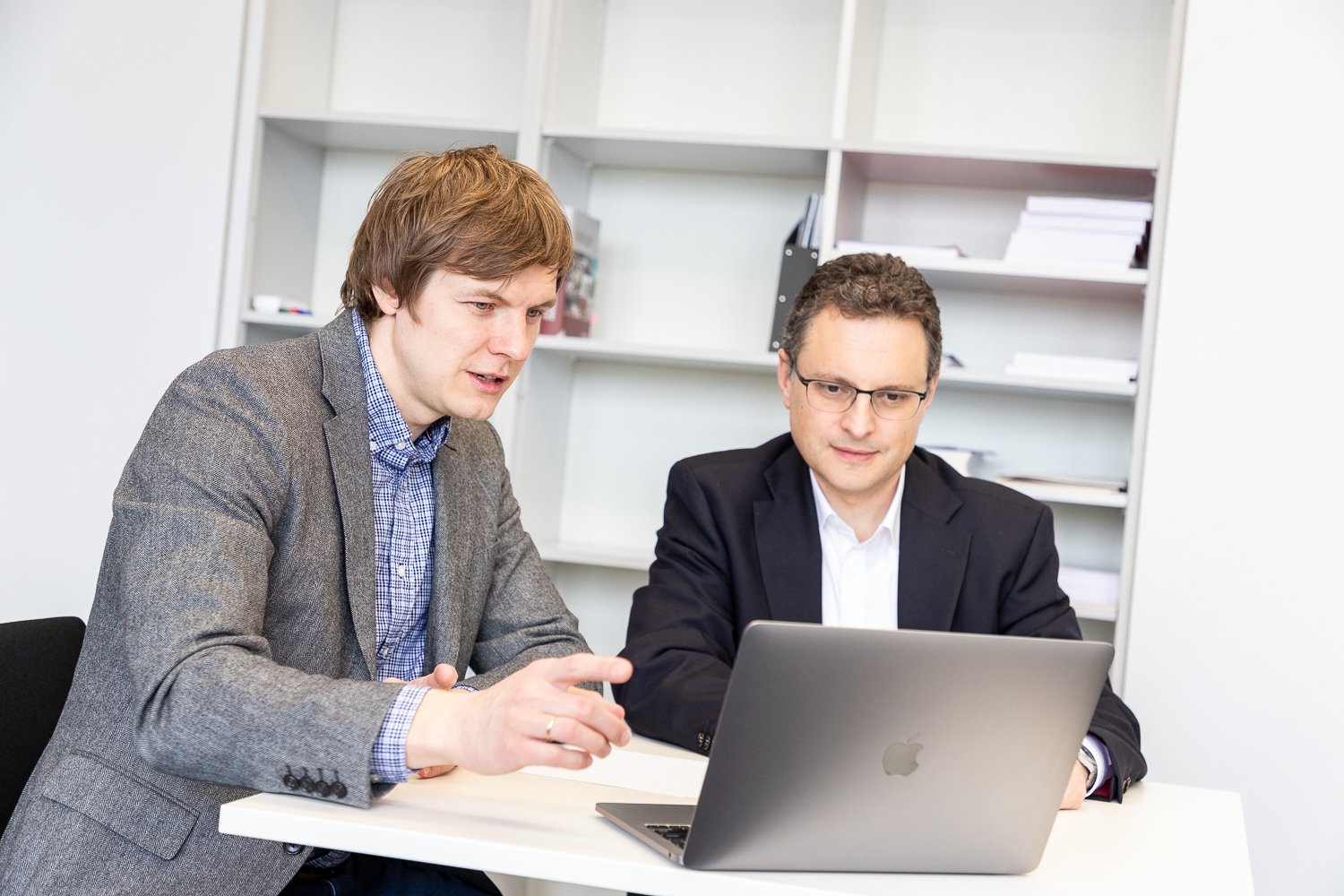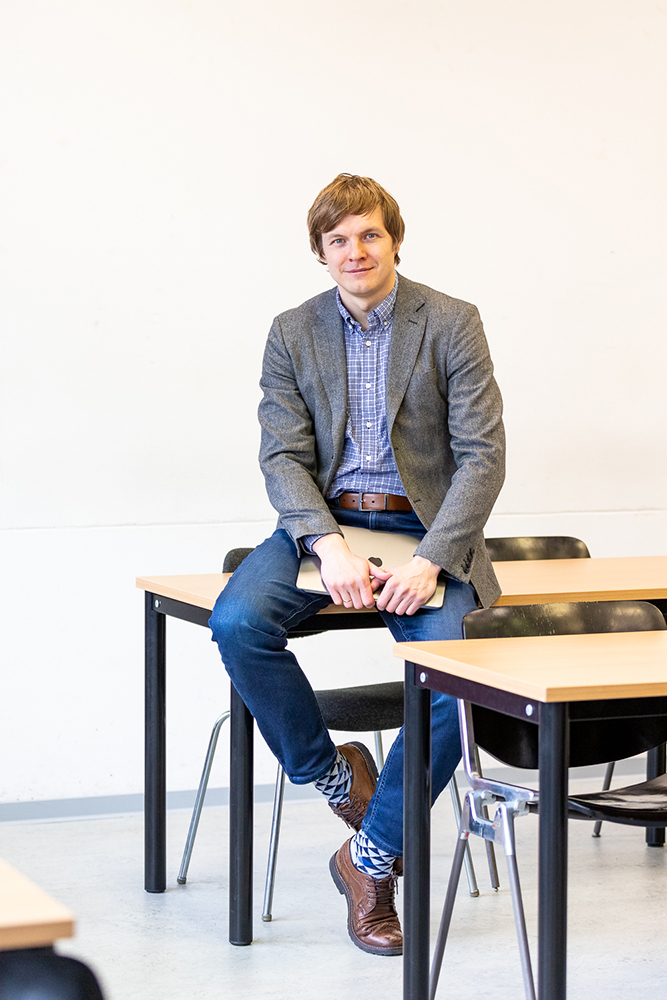When the wind turbine is in the mountains Humboldt Fellow Dr Artem Korobenko is doing research at the Institute of Structural Analysis
In February, Professor Roland Wüchner welcomed a research fellow from the Alexander von Humboldt Foundation to the Institute of Structural Analysis. Professor Artem Korobenko is researching computational modelling with applications in aerospace and renewable energies. At TU Braunschweig, the associate professor from the University of Calgary, Canada, is primarily working on the development of a multi-fidelity tool for the design and analysis of wind turbines in complex terrain with hills and mountains.

Prof. Artem Korobenko and Prof. Roland Wüchner are working on joint research projects. Picture credits: Kristina Rottig/TU Braunschweig
For Professor Artem Korobenko, the Humboldt Fellowship, with which he will spend a few months at TU Braunschweig and a few more at TU Munich, is not only a prestigious award: “It is a unique opportunity to work with world-class experts in this field in Germany and carry a multinational project that can provide benefits to both countries and foster a future growth of the wind energy sector.” Professor Roland Wüchner is very happy about the guest from Canada: “The research fellowships are a great opportunity for my group to host international, highly recognised colleagues at TU Braunschweig. It is an excellent basis for fruitful research collaborations now and in the future. I have known Prof. Korobenko since his PhD in San Diego and with the fellowship we now have the opportunity to intensify the collaboration between our research groups.”
Working groups complement each other
The research areas of the Institute of Structural Analysis and Professor Artem Korobenko’s group complement each other well. “Our groups have complementary expertise in fluid mechanics and structural mechanics to tackle very challenging problems in wind energy,” the scientist emphasises.
This includes the development of a multi-fidelity tool for design and analysis of wind turbine farms operating in complex terrains (hills, mountains, etc) and under realistic environmental conditions (e.g. atmospheric flows). This also includes the development of computational methods for Fluid-Structure Interaction which can be applied in various areas beyond wind energy.
Further cooperation planned

Prof. Artem Korobenko is a guest at the Institute of Structural Analysis. Picture credits: Kristina Rottig/TU Braunschweig
Professor Artem Korobenko sees his research stay as a prelude to further cooperation: “We want to build a strong collaboration between our institutions, and this can be a starting point.” The research groups will continue to work on the research project at the end of the fellowship and publish the results in journals. In addition, Dr Artem Korobenko and Professor Roland Wüchner have already held talks with industrial partners in both countries who are very interested in integrating the developments into their current systems. “Finally, the project offers a unique training opportunity for students that may lead to the establishment of an exchange programme,” adds Professor Korobenko. “I am already planning several trips to Germany in the coming years to continue our collaboration.”
He has already been able to get to know Braunschweig a little. I am staying in the centre and I really like a scenic walk to campus,” he says. “You can see a rich history and cultural heritage, with numerous museums, theatres, and historical buildings. At the same time, it is also a hub for research and innovation with TU Braunschweig as a flagship institution and multiple strong industries around.”
